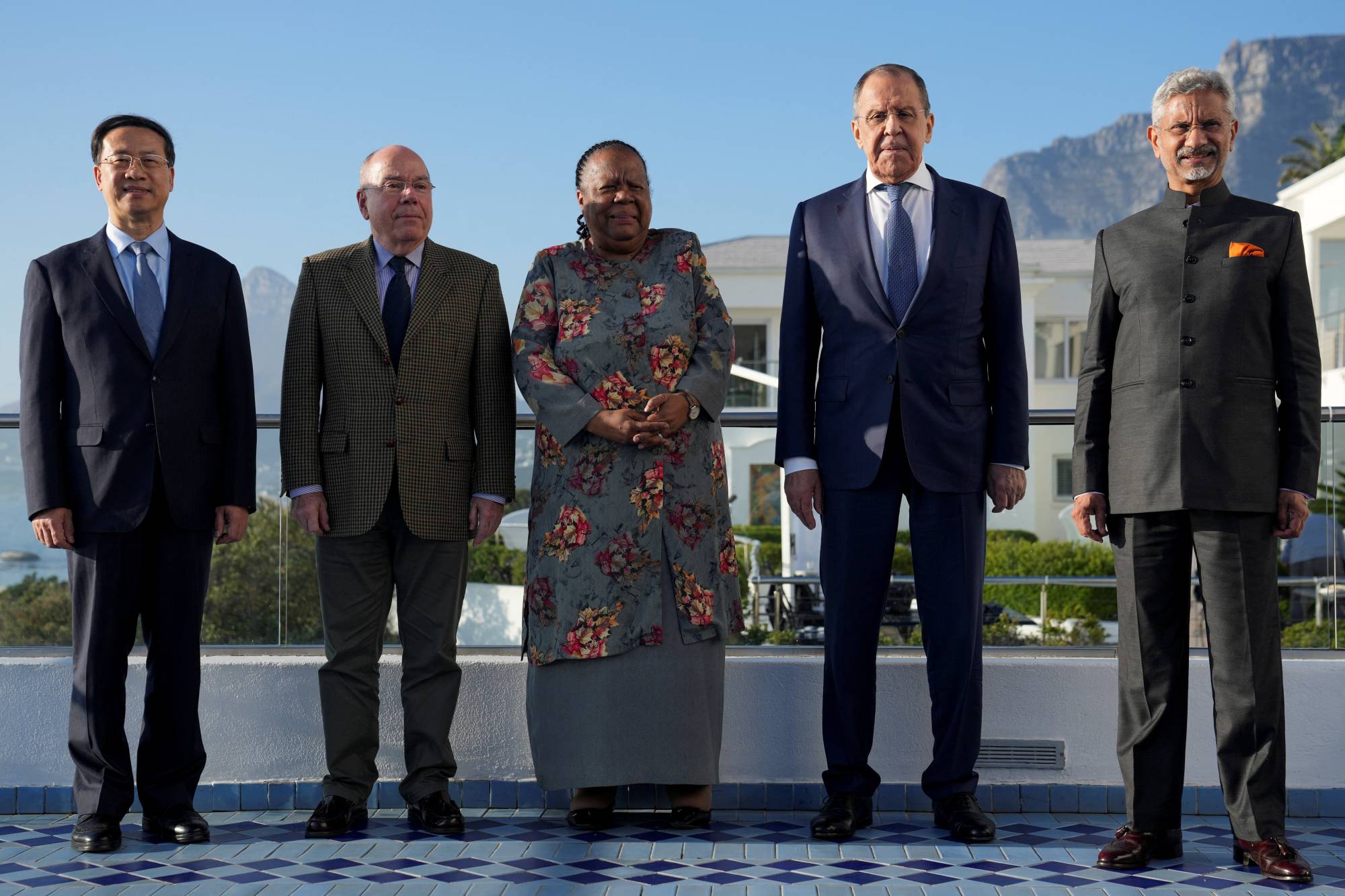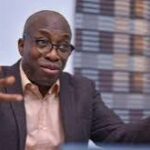Last Friday, Foreign Ministers of BRICS (Brazil, Russia, India, China and South Africa) held a meeting in Cape Town. They were later joined in Friends of BRICS session with 14 countries desirous of being members of the five-nation emerging power bloc. Nigeria was conspicuously absent.
Earlier on May 16, South African President Cyril Ramaphosa announced that Russian President Vladimir Putin and Ukraine’s Volodymyr Zelenskiy had agreed to meet six African leaders to discuss a potential peace plan for the Russian-Ukrainian war. Joining Ramaphosa will be leaders of Senegal, Uganda, Egypt, the Republic of the Congo, and Zambia.
And Nigeria, once the ‘giant of Africa,’ was again missing in action. These showcase the declining position of Nigeria in Africa and the world. This is most embarrassing for a country that once was a global voice of authority and had a weighty voice beyond the continent.
In the 1960s, Sir Abubakar Tafawa Balewa, Nigeria’s first Prime Minister, was popularly known as “The Golden Voice of Africa.” Under Balewa, Nigeria joined others to drive the apartheid South Africa out of the Commonwealth in 1961.
- Emefiele: Security beefed up at MMIA private terminal
- Al-Makura clears air on order for APC to vacate his building
In 1975, U.S. and its allies planned to install National Union for the Total Independence of Angola (UNITA) rebel movement in power in Angola, but it failed at the hands of Nigerian-led foreign policy initiatives whereby then military Head of State General Murtala Mohammed galvanized African consciousness when he gave a rousing speech at the OAU Summit in 1975, asserting that “Africa has come of age…”
This leadership position made the continental body to recognize Popular Movement for the Liberation of Angola (MPLA) as the legitimate government of Angola. The same spirit spurred Africa to collectively fight for black majority rule in Zimbabwe, Namibia, Mozambique, and the defeat of apartheid in South Africa.
With this, Nigeria was recognised as a leader in the anti-apartheid movement, becoming a member of the Frontline States (FLS), a loose coalition of mainly African countries sharing border with South Africa but committed to ending apartheid and white minority rule in South Africa and Rhodesia.
Nigeria showed its FLS stance in the Southern African Liberation struggle when on July 30, 1979, it nationalized the assets of British Petroleum (BP) because of its support for Apartheid Policy.
Nigeria’s role in conflict resolution manifested greatly in the formation and mobilisation of the ECOWAS Monitoring Group (ECOMOG) which fought and ended the crisis in Liberia and Sierra Leone. As a major influencer, Nigeria’s interventions resulted in the restoration of democratic rule in Equatorial Guinea and in Sao Tome and Principe.
The nation played significant roles in United Nations Peacekeeping, rising to global acclaim as the world’s fourth troop contributing country. At a point, Nigeria, a regional hegemon, became the parameter on which Africa’s relationships with the rest of the world was often gauged. But not anymore.
It’s such that on March 23, 2022, at the maiden symposium of the Emeka Anyaoku Institute for International Studies and Diplomacy at the Nnamdi Azikiwe University, Awka, former Commonwealth Secretary-General, Emeka Anyaoku, declared: “Nigeria’s standing in the world has declined!”
And it is showing in how Nigeria and Nigerians are treated. For example, In June 2020, armed men stormed Nigeria’s High Commission’s premises in Accra, Ghana, demolishing a block of uncompleted apartments and driving the staff away. In August 2021, a Nigerian diplomat in Indonesia was manhandled by the country’s immigration officials in front of the diplomatic mission.
Because of the country’s declining rating, despite Nigeria’s huge financial contributions to the OAU and AU, as one of the highest financiers, in January 2006, it suffered diplomatic disgrace when it presented a candidate for the position of Judge at the African Court of Justice, an organ of the AU. Of the 11 positions at the court, only 12 countries were interested, meaning only one country would have to lose. In the end, Nigeria had a disgraceful 13 votes and had to withdraw its candidate to avert further shame. And out of the 11 positions sought by 12 countries, Nigeria was the only loser.
So, it is imperative that Nigeria regains its lost glory. With Nigeria remaining Africa’s most populous country, its largest economy and the world’s largest agglomeration of Blacks, it is time for it to reclaim its voice on the continental and global arena. Luckily, President Bola Ahmed Tinubu dwelt on this in his inaugural address.
According to Tinubu: “My primary foreign policy objective must be the peace and stability of the West African sub-region and the African continent. We shall work with ECOWAS, the AU and willing partners in the international community to end extant conflicts and to resolve new ones. As we contain threats to peace, we shall also retool our foreign policy to more actively lead the regional and continental quest for collective prosperity.”
It’s been long Nigeria mobilized the continent towards a particular line of thought. It is time for the governance structure and the policies being implemented to push Nigeria back to our unchallenged position in Africa and the global stage.

 Join Daily Trust WhatsApp Community For Quick Access To News and Happenings Around You.
Join Daily Trust WhatsApp Community For Quick Access To News and Happenings Around You.


